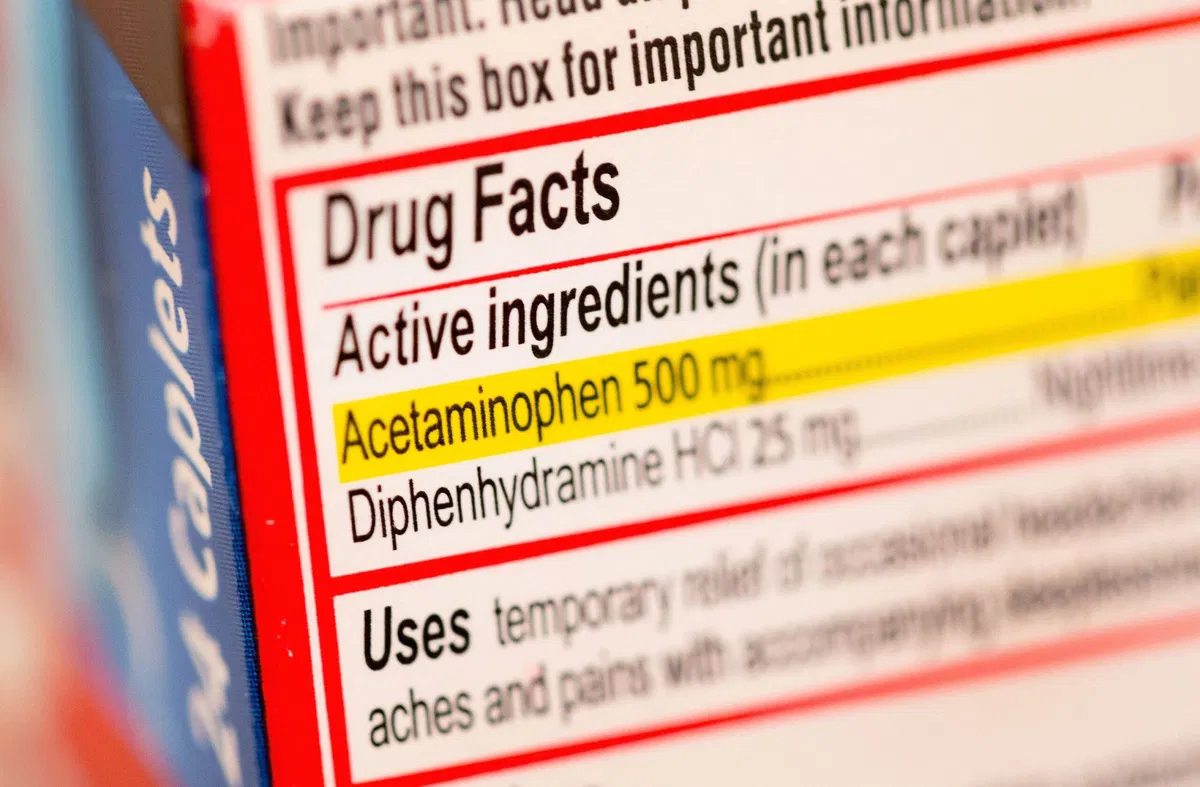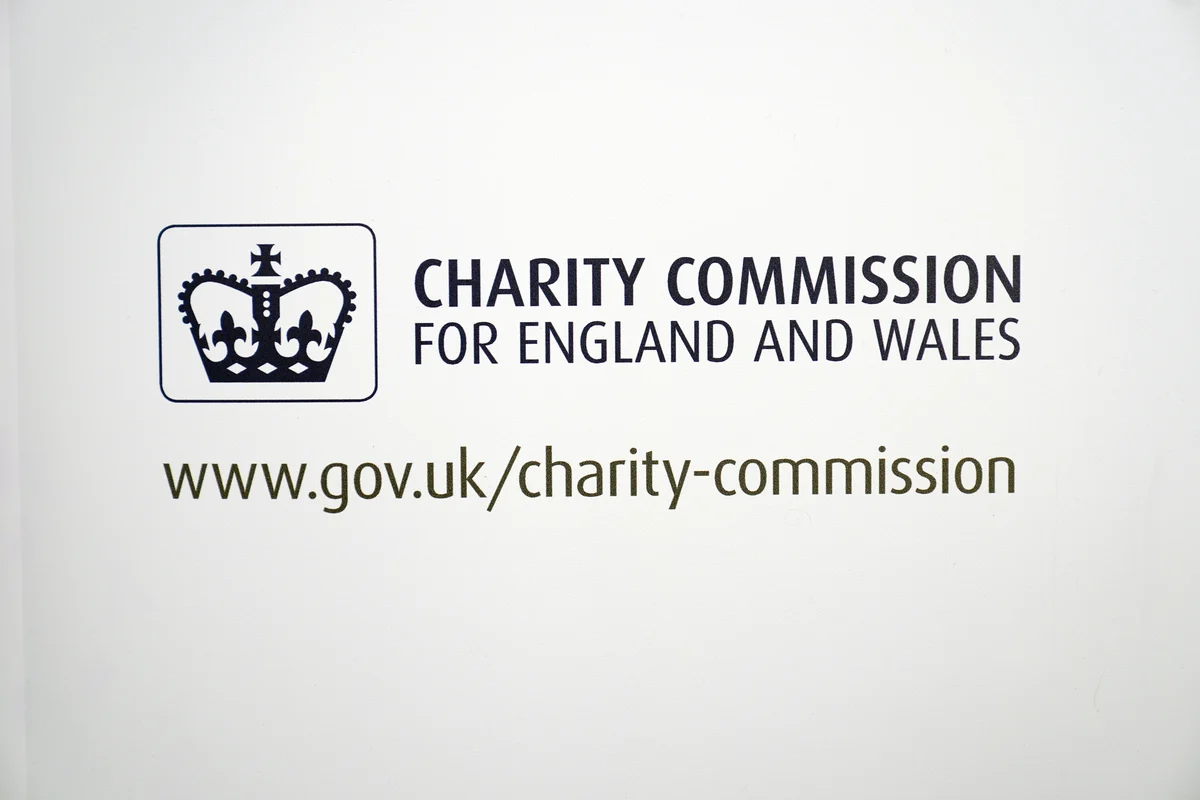Trump links autism to acetaminophen use during pregnancy, despite decades of evidence it’s safe

CNN
By Jen Christensen, Brenda Goodman, Meg Tirrell, CNN
(CNN) — President Donald Trump announced Monday that the US Food and Drug Administration will notify doctors that the use of Tylenol during pregnancy can be associated with a “very increased risk of autism,” despite decades of evidence that it is safe.
“They are strongly recommending that women limit Tylenol use during pregnancy unless medically necessary,” such as to treat fever, “if you can’t tough it out,” Trump said.
Experts say there are multiple causes of autism, and the science showing a connection between autism and Tylenol is not settled.
Without treatment, a fever can be dangerous for both the fetus and the pregnant person, experts say. Risks include miscarriage, birth defects and high blood pressure.
At some point during pregnancy, most people use acetaminophen, sold under the brand name Tylenol, studies show. Acetaminophen is considered the only safe over-the-counter option for pain or fever for pregnant people. Other common pain relief options like ibuprofen or regular-dose aspirin can increase the risk of serious complications during pregnancy.
Speaking from the White House alongside US Health and Human Services Secretary Robert F. Kennedy Jr., US Food and Drug Administration Commissioner Dr. Marty Makary, US National Institutes of Health Director Dr. Jay Bhattacharya and US Centers for Medicare & Medicaid Services Administrator Dr. Mehmet Oz, Trump did not keep his remarks to Tylenol during pregnancy. He advocated for breaking up childhood vaccinations and even pushing back the hepatitis B shot for newborns — a public health strategy that brought the infection in children to the brink of elimination — to age 12.
It’s “too much liquid, too many different things are going into that baby,” Trump said, without providing further evidence.
Extensive research has shown that there’s no link between vaccines and autism.
Trump thanked Kennedy for bringing autism to the “forefront of American politics, along with me.” Kennedy, a longtime anti-vaccine activist, has promoted discredited theories that vaccines cause autism.
“We understood a lot more than a lot of people who studied it,” Trump said.
The messages from Kennedy and the FDA on Monday were more moderate than Trump’s repeated warnings not to take Tylenol during pregnancy or give it to babies.
Kennedy said HHS will launch a nationwide public service campaign to inform families and protect the public health about taking Tylenol during pregnancy. The agency, he said, is encouraging clinicians to exercise their best judgment and use acetaminophen for fevers and pain in pregnancy by using the lowest effective dose with “their shortest necessary duration and only when treatment is required.”
The FDA said it is beginning the process to change the safety label on acetaminophen products and sending a letter to physicians that says the choice to take Tylenol “still belongs with parents.” The agency added that although an association has been described in studies, “a causal relationship has not been established.”
Tylenol maker Kenvue said Monday that it “strongly disagrees” that acetaminophen causes autism and said it is “deeply concerned about the health risks and confusion this poses for expecting mothers and parents.”
“Acetaminophen is the safest pain reliever option for pregnant women as needed throughout their entire pregnancy,” the company said in a statement. “Without it, women face dangerous choices: suffer through conditions like fever that are potentially harmful to both mom and baby or use riskier alternatives. High fevers and pain are widely recognized as potential risks to a pregnancy if left untreated.”
Kenvue also said it will continue to reinforce the message that expectant mothers speak to health professionals before taking any over-the-counter medications.
What the science says
The science on the connection between Tylenol and autism is not settled. A 2024 peer-reviewed Swedish study published in JAMA that included more than 2 million children found no association between acetaminophen taken in pregnancy and autism, attention deficit hyperactivity disorder or other neurodevelopmental disorder.
In August, a BMC Environmental Health study analyzed 46 studies on acetaminophen use during pregnancy and neurodevelopmental disorders. Six of the studies the researchers looked at specifically examined acetaminophen use and autism. Overall, the analysis concluded that there was “strong evidence of an association” between acetaminophen use during pregnancy and autism, but the authors were careful to say that the paper could only show an association, the research could not show that acetaminophen caused autism.
“We recommend judicious acetaminophen use — lowest effective dose, shortest duration — under medical guidance, tailored to individual risk–benefit assessments, rather than a broad limitation,” the researchers wrote in that analysis.
The Autism Science Foundation said it was “deeply concerned” about the announcement and characterized it as “dangerous.”
“We are unsure why this announcement came today and how the conclusions were drawn,” Alison Singer, the group’s president, said in a statement. “No new data or scientific studies were presented or shared. No new studies have been published in the literature. No new presentations on this topic were made at scientific or medical conferences. Instead, President Trump talked about what he thinks and feels without offering scientific evidence. He said ‘tough it out,’ meaning don’t take Tylenol or give it to your child. It took me straight back to when moms were blamed for autism. If you can’t take the pain or deal with a fever, then it’s your fault if your child has autism. That was shocking. Simply shocking.”
Dr. Steven J. Fleischman, the president of the American College of Obstetricians and Gynecologists, said Monday’s announcement was irresponsible.
“Today’s announcement by HHS is not backed by the full body of scientific evidence and dangerously simplifies the many and complex causes of neurologic challenges in children,” Fleischman said in a statement. “It is highly unsettling that our federal health agencies are willing to make an announcement that will affect the health and well-being of millions of people without the backing of reliable data.”
FDA approves drug to treat autism
The FDA said it has approved prescription leucovorin — a high-dose calcium folinic acid typically used to treat cancer patients during chemotherapy — for treatment of autism in children, “the first FDA-recognized treatment for autism.” Approval will allow Medicaid programs to cover the medication.
The FDA says it is also restoring the formerly withdrawn approval of Wellcovorin, the branded version of leucovorin, a prescription high-dose calcium folinic acid made by GSK.
The FDA asked GSK to file a new application to add data on cerebral folate deficiency (CFD), a condition in which there is a low level of folate in the cerebrospinal fluid, the fluid that surrounds the spinal cord and brain. Leucovorin is typically used to treat cancer patients during chemotherapy, but it has also been used off-label to treat CFD.
GSK said it will submit a label update for Wellcovorin at the agency’s request.
Some believe autism is related to low levels of folate in the brain, a B vitamin found in many foods like in leafy greens, nuts and eggs. The body needs folate to make new red blood cells. In pregnancy, it’s essential for the growth and development of the fetus and can prevent birth defects.
The body can’t store a lot of natural folate, so a synthetic form called folic acid is often added to food like rice, bread and pasta. It can also be taken as a dietary supplement.
Doctors already recommend that all women capable of becoming pregnant take 400 micrograms of folic acid every day, according to the CDC.
There are just a few studies testing leucovorin in children with autism, but some experts think they’re promising.
Dr. Richard Frye, a pediatric neurologist in Phoenix, Arizona, who co-founded the nonprofit Autism Discovery and Treatment Foundation, said that in his first study of 93 kids with autism who were tested for antibodies that may prevent folate from reaching the brain, about three-quarters had them. About one third of children who tested positive for the antibodies saw at least moderate benefit from taking leucovorin, he said. “Their language improved. Their verbal communication improved.”
Autism advocates say the theory that these antibodies may be playing a role in autism symptoms is interesting, but the science is still preliminary. The antibodies can also be found in relatives of people with autism who don’t have the condition.
Frye said he has seen leucovorin help children with autism, but “there’s no autism pill.”
“And there’s no one-size-fits-all. The one thing we know about autism is that it’s very complicated, and kids need to be taken individually.”
Makary characterized the new autism initiatives as groundbreaking.
“This administration is working together to ask big questions about why our nation’s children are getting sick so fast too often. Medicine is doing small little studies, giving us answers we already knew, but we’ve got to make a difference,” he said.
NIH Director Dr. Jay Bhattacharya also announced Monday more than $50 million in awards to support 13 research projects on autism, including biology, environment and genetics.
Autism rates rise
On Monday, Trump called autism a “horrible, horrible crisis” and pointed to the increase in cases over the years as one of “the most alarming developments in history.” He said researchers have to move quicker on finding the causes of autism, and Kennedy said all agencies under his leadership will be researching the issue.
The number of people diagnosed with autism in the US has been increasing. About 1 in 31 kids were diagnosed with autism spectrum disorder by age 8 in 2022, up from 1 in 36 in 2020, according to the CDC. In 2015, it was 1 in 68 children.
Factors driving the increase include a broader definition of autism implemented by the psychiatric community in 2013, and increasing awareness of symptoms and acceptance of the diagnosis. There has also been a concerted effort to screen more young children for autism since early intervention can significantly improve a child’s symptoms and skills long-term.
Blaming Tylenol and prescribing a single drug cannot end autism, experts say.
“Regarding autism, we know it is complex, highly variable and increasingly linked to genetics,” Dr. Susan Kressly, president of the American Academy of Pediatrics, said in a statement. “There is no single, root cause of autism, and there is no single medication that will give every autistic child or adult what they need. Individualized plans, often involving a combination of developmental, behavioral, educational and social-relational strategies, can help improve outcomes that are meaningful to individuals and families. We also need and welcome additional investments in federally funded research to better support families of autistic children.”
Just as there are multiple genes involved in different cancers, at least 100 genes are involved in autism, according to Dr. Peter Hotez, a pediatrician who co-directs the Center for Vaccine Development at Texas Children’s Hospital. Claiming that there is one “smoking gun” that can cure or even cause autism would be irresponsible, he said.
“So for every different autism gene, there’s really a different form of autism, and it’s unlikely that a single unifying chemical agent is going to be able to address even a small proportion of those 100-plus autism genes,” Hotez, who has a daughter with autism and has written a book about the condition, told CNN.
“Look, I say this as the parent of a child with autism: You want a simple answer, right? But what is so clear is that there is not always a simple answer,” he said. “There are so many things to consider, and it is very hard to pin down.”
‘Unsupported and wrong’
None of the professional groups with expertise in autism that were contacted by CNN – including the American Academy of Pediatrics, March of Dimes, EveryCure and the American College of Obstetricians and Gynecologists – said they had been consulted by the Trump administration on the new announcement.
“Today’s White House event on autism was filled with dangerous claims and misleading information that sends a confusing message to parents and expecting parents and does a disservice to autistic individuals,” Kressly said.
Trump’s announcement will scare and confuse, said Dr. Veronica Gillispie-Bell, vice chair of the American College of Obstetricians and Gynecologists’ Clinical Practice Guidelines Committee on Obstetrics.
“Even for physicians, it puts us in a very difficult predicament. Our professional societies and the science tells us that Tylenol is safe, but when you have the FDA saying something different, it puts us in a very, very difficult position,” Gillispie-Bell told CNN.
Telling women to “tough out” a fever is a “dangerously irresponsible thing for President Trump to say,” said Dr. Paul Offit, a professor of pediatrics in the Division of Infectious Diseases at Children’s Hospital of Philadelphia and a former member of the CDC’s vaccine advisory panel.
“That only puts children at higher risk, especially with fever in the first trimester.”
Dr. Arthur Caplan of the NYU Grossman School of Medicine Division of Medical Ethics called the announcement “the saddest display of a lack of evidence, rumors, recycling old myths, lousy advice, outright lies, and dangerous advice I have ever witnessed by anyone in authority in the world claiming to know anything about science.”
“What was said was not only unsupported and wrong but flat out malpractice in managing pregnancy and protecting fetal life,” he wrote in an email.
CNN’s Nadia Kounang, Jamie Gumbrecht, Sarah Owermohle, Amanda Sealy and Katherine Dillinger contributed to this report.



